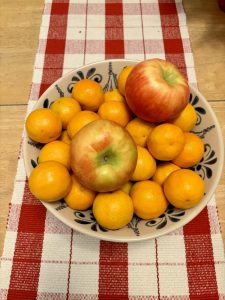Almost every human has faced periods where their self-esteem seems to plummet. When experiencing lowered confidence, humans often compare themselves to those around them. We compare how we look, the type of friends we have, the area we live in, the vacations we go on, etc.
Comparison, by definition, is “a consideration or estimate of the similarities or dissimilarities between two things or people.” Initially, comparison isn’t necessarily a bad thing. Although it can be helpful when striving to grow, unnecessary comparison becomes exhausting and draining. Teddy Roosevelt once said, “Comparison is the thief of joy,” and that couldn’t be truer. Life doesn’t wait for us while we waste it comparing and hating ourselves.
Comparison has been prevalent for centuries; however, the rise of social media has changed how humans compare themselves. The photos and videos posted by our favorite influencers, actors, or musicians are almost always inaccurate. The new homes, luxurious European trips, and picture-perfect families are what they want you to see. You don’t see their loneliness, eating disorders, anxiety, or trauma. Comparing a real, living, breathing human to the fake, perfect persona online will never be a fair comparison. The human will never win. It’s not possible.

Is comparison an instinct or a choice? To an extent, humans’ brains are wired to compare. In 1954, Leon Festinger created the theory that cognitively, humans must compare themselves to others to decide their personal and social worth. Humans need comparison to understand their identity and perceive the world. For example, someone may claim that they are “wealthy.” They can only make this statement because of their capability to compare and realize that most others obtain less money. Contrasting ourselves with others is neurologically more efficient when making judgments and choices. While comparison is ingrained in human DNA, we can still break free from unproductive comparison.
So then, how can we choose a life of joy over a life of comparison? Inevitably, humans will compare. There is no “off” switch to prevent comparison forever. But using it as a tool instead of letting it control life makes all the difference. Audrey Yang (9) says that when she finds herself comparing herself to others, she “remembers that she is her own person, and to reflect and learn from mistakes and flaws, rather than comparing to others.” Flip the situation around and view it instead as inspiration. Someone may compare themselves to their old friend. This friend seems so much happier and more accomplished. First, establish what this friend has that is so amazing. The friend attends a top-ranked university, has a larger circle of friends, and travels more. These are all positive things. But would obtaining them fix all of your problems? Would you find something else to compare? Probably. Instead of spiraling, brainstorm ways to achieve the “happier” lifestyle this friend lives.
Using comparison to your advantage can be beneficial, but at the end of the day, humans must realize that they don’t have to be those they idolize and compare themselves to. Teenagers especially need to understand that everyone is living through different seasons of life and are experiencing different things. Every human on this earth is unique, and simply embracing that will help live a life of joy.



























